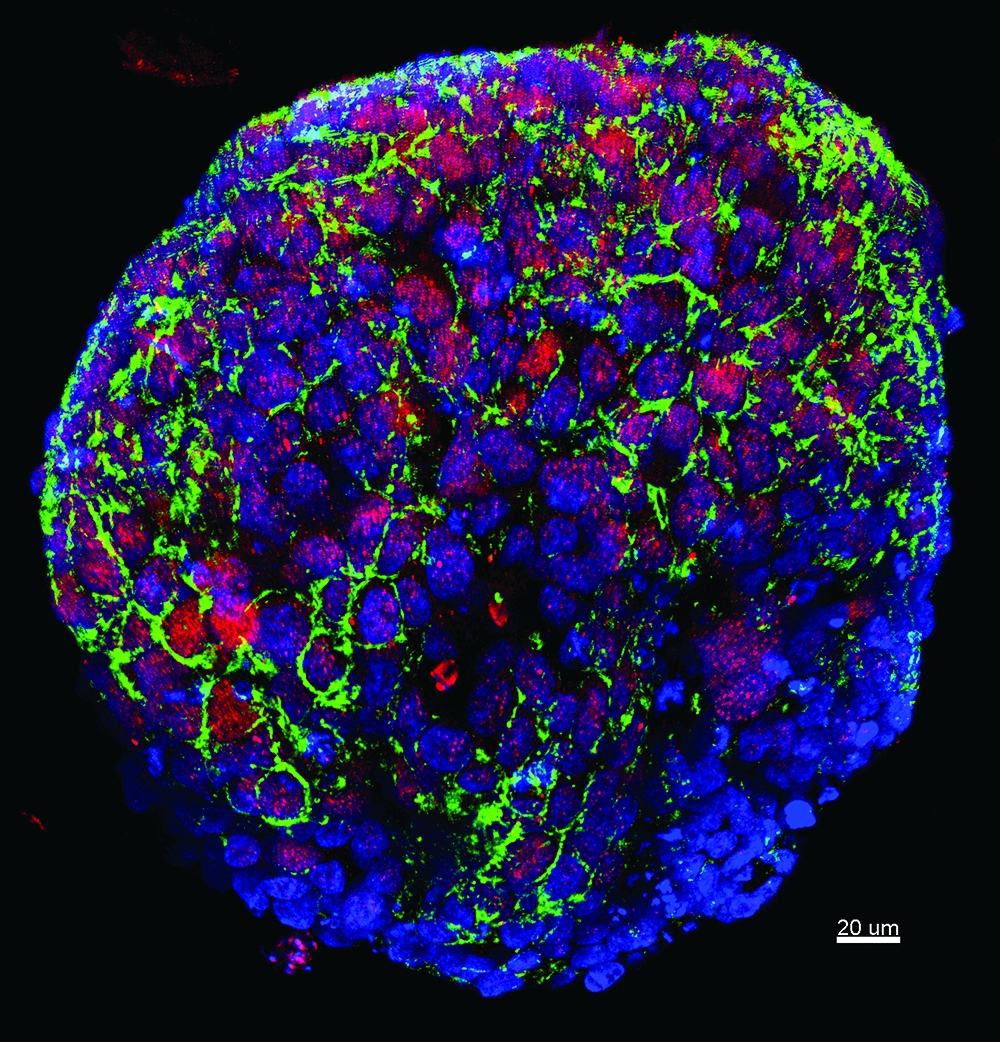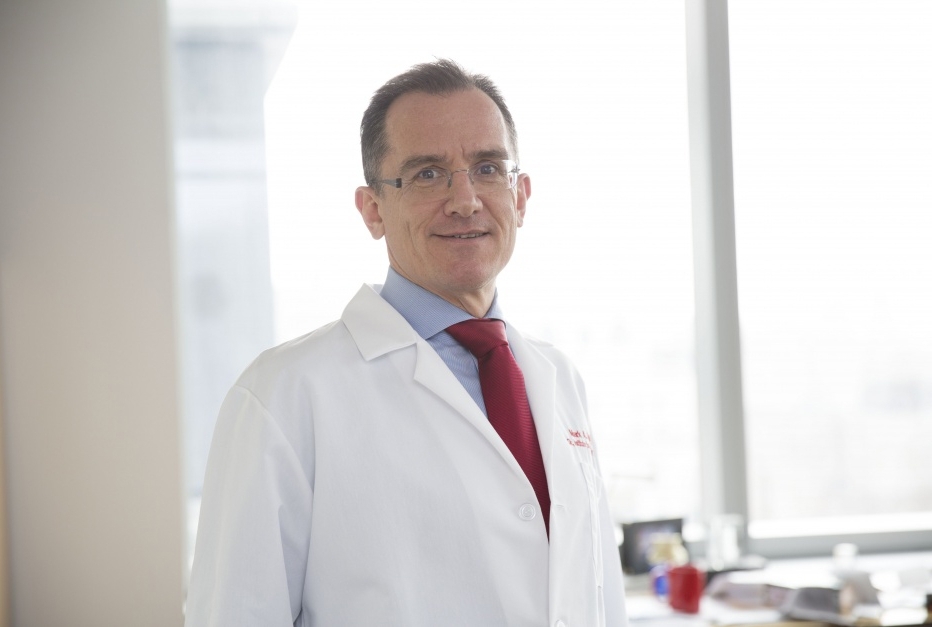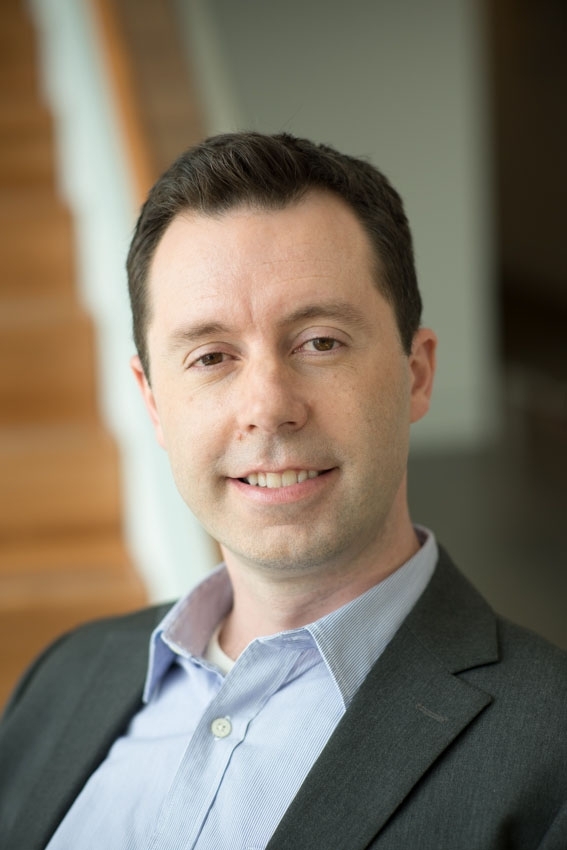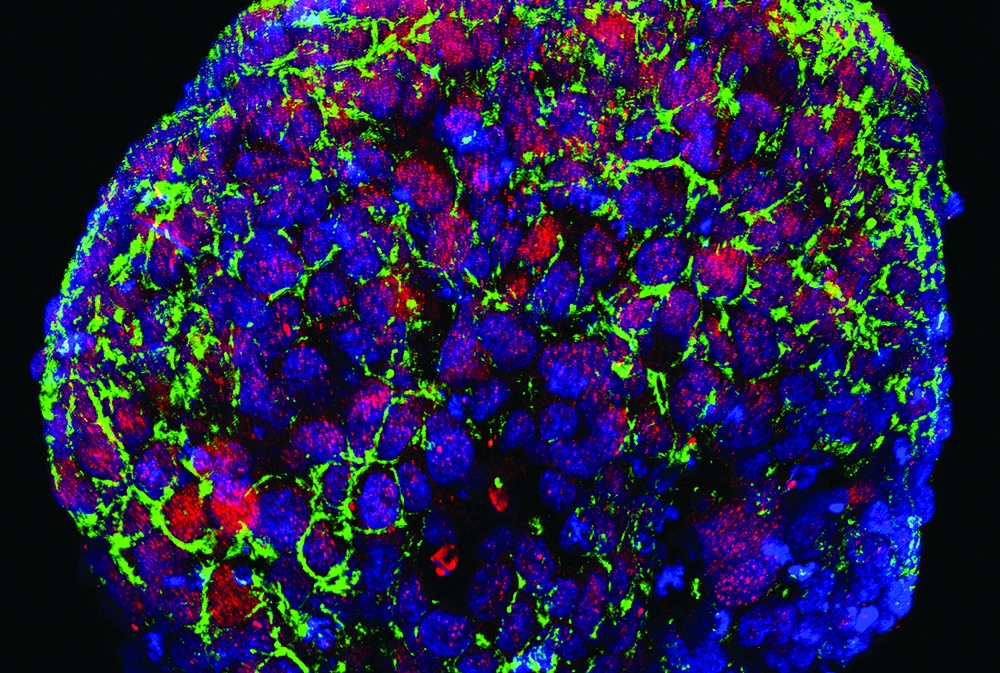Precision Medicine Team at Weill Cornell Medicine and NewYork-Presbyterian Will Introduce Whole Exome Sequencing Test, EXaCT-1, to Clinical Setting
NEW YORK (November 13, 2015) — A powerful new test that can reveal untapped therapies for patients with advanced cancers by scanning thousands of their genes will soon be available for patients at Weill Cornell Medicine and NewYork-Presbyterian/Weill Cornell Medical Center. The test, EXaCT-1, identifies alterations within tumors — some of which drive cancerous growth — on a magnitude up to hundreds of times greater than similar technologies designed to pinpoint the most precise ways of treating the disease.

Tumor cells from a biopsy of a patient enrolled in the EXaCT-1 pilot program that investigators are culturing in the lab for further biologic studies and drug testing. Image credit: Dr. Loredana Puca
Weill Cornell Medicine recently received approval for EXaCT-1 by the New York State Department of Health. The test was developed by the institutions' precision medicine team. In May, the team published findings on its first 97 patients who underwent the test and found that scanning a patient's tumor to look for any genomic mutations — rather than limiting the screen to mutations commonly associated with a given patient's tumor type — worked. In 92 percent of cases in the pilot program, the precision medicine team was able to recommend new treatment options based on the test's findings. Now that the state has approved the test, precision medicine leaders will begin the process to implement it for large-scale clinical use for oncology patients treated at NewYork-Presbyterian/Weill Cornell. Until that time, patients with advanced cancers will be able to access EXaCT-1 through the Caryl and Israel Englander Institute for Precision Medicine at Weill Cornell Medicine, the research enterprise of the two institutions' joint precision medicine efforts.
"Since President Obama announced his precision medicine initiative in January, there has been a huge push from institutions across the country to establish themselves as leaders in this field," said Dr. Mark Rubin, director of the Englander Institute and the Homer T. Hirst III Professor of Oncology in Pathology at Weill Cornell Medicine, vice chair for molecular and genomic pathology at NewYork-Presbyterian/Weill Cornell, and head of the precision medicine program at both institutions. Dr. Rubin was at the White House when the president announced the initiative, which dedicates $215 million from his proposed 2016 budget to expand data sharing between institutions; develop new tests, like EXaCT-1, that identify genomic drivers in cancer; and calls for more research on how to apply findings in precision medicine to more effective therapies.
"As the only team in the region that can offer this comprehensive and technically advanced test, Weill Cornell Medicine and NewYork-Presbyterian are at the forefront of precision medicine. We are the go-to destination for patients who need the most advanced care," Dr. Rubin said.

Dr. Mark Rubin
Most institutions offer sequencing tests that examine anywhere from 50 to 400 genes within a sample of a patient's tumor to look for disease characteristics that physicians know can be effectively treated with particular drugs or other technologies. Many patients with primary cancers — those of the lung, breast, skin, blood and lymphatic system — will undergo this screening with their initial evaluation. Other patients will have these screenings done after their disease has spread, grown or stopped responding to treatment.
Unlike these focused tests, typically called panel sequencing, the EXaCT-1 assay takes an unbiased, exploratory look at more than 21,000 genes in cells both healthy and malignant, allowing researchers to find alterations in the cancer-development process in unexpected regions of the exome, where DNA is transcribed into RNA. This type of test, known as whole exome sequencing, can be effective in advanced-stage patients for whom other treatments have failed because it uncovers mutations that the less comprehensive tests miss. In practice, this means, for example, that a patient with bladder cancer whom EXaCT-1 shows to share a mutation associated with breast cancer might benefit from a drug typically prescribed to fight the latter type of tumor.
"That's the nice thing about sequencing the entire tumor genome – we cover genes that other tests will miss," said Dr. Olivier Elemento, head of the Englander Institute for Precision Medicine's computational biology group, an associate professor of physiology and biophysics and head of the laboratory of cancer systems biology in the HRH Prince Alwaleed Bin Talal Bin Abdulaziz Al-Saud Institute for Computational Biomedicine at Weill Cornell. "This test is ideal for patients with advanced cancer because it allows us to identify mutations that may be related to the resistance of their disease, and helps us to pinpoint the best way to treat them."

Dr. Olivier Elemento. Photo credit: Roger Tully
The screen requires a blood sample and a sample of the patient's tumor. Computational biologists at the Englander Institute analyze the data and generate patient-and physician-friendly reports that summarize the key clinical and genetic findings. Once the precision medicine team has reviewed the results, it consults with the patient's oncologist at NewYork-Presbyterian/Weill Cornell to help decide which treatment options and clinical trials may best target the patient's disease.
"We're able to do this quickly enough that we can make a significant impact on a patient's treatment plan," Dr. Rubin said. "This means that a patient who's seen by a doctor and started on a treatment will get their results back quickly enough to potentially influence their treatment protocol if the results uncover something new."
Once EXaCT-1 is available in the clinical setting, Dr. Rubin expects that the test will draw many new patients to Weill Cornell Medicine and NewYork-Presbyterian.
"Emerging knowledge from genomic studies is telling us that there are many more mutations than we anticipated, and our test addresses that," Dr. Rubin said. "Patients that would previously have been considered untreatable might now have hope for additional therapeutic approaches."
NewYork-Presbyterian
NewYork-Presbyterian is one of the nation's most comprehensive healthcare delivery networks, focused on providing innovative and compassionate care to patients in the New York metropolitan area and throughout the globe. In collaboration with two renowned medical school partners, Weill Cornell Medicine and Columbia University College of Physicians & Surgeons, NewYork-Presbyterian is consistently recognized as a leader in medical education, ground-breaking research and clinical innovation.
NewYork-Presbyterian has four major divisions: NewYork-Presbyterian Hospital is ranked #1 in the New York metropolitan area by U.S. News and World Report and repeatedly named to the magazine's Honor Roll of best hospitals in the nation; NewYork-Presbyterian Regional Hospital Network is comprised of leading hospitals in and around New York and delivers high-quality care to patients throughout the region; NewYork-Presbyterian Physician Services connects medical experts with patients in their communities; and NewYork-Presbyterian Community and Population Health features the hospital's ambulatory care network sites and operations, community care initiatives and healthcare quality programs, including NewYork Quality Care, established by NewYork-Presbyterian, Weill Cornell and Columbia.
NewYork-Presbyterian is one of the largest healthcare providers in the U.S. Each year, nearly 29,000 NewYork-Presbyterian professionals deliver exceptional care to more than 2 million patients.
For more information, visit www.nyp.org and find us on Facebook, Twitter and YouTube.
Weill Cornell Medicine
Weill Cornell Medicine is committed to excellence in patient care, scientific discovery and the education of future physicians in New York City and around the world. The doctors and scientists of Weill Cornell Medicine — faculty from Weill Cornell Medical College, Weill Cornell Graduate School of Medical Sciences, and Weill Cornell Physician Organization — are engaged in world-class clinical care and cutting-edge research that connect patients to the latest treatment innovations and prevention strategies. Located in the heart of the Upper East Side's scientific corridor, Weill Cornell Medicine's powerful network of collaborators extends to its parent university Cornell University; to Qatar, where Weill Cornell Medicine-Qatar offers a Cornell University medical degree; and to programs in Tanzania, Haiti, Brazil, Austria and Turkey. Weill Cornell Medicine faculty provide comprehensive patient care at NewYork-Presbyterian/Weill Cornell Medical Center, NewYork-Presbyterian/Lower Manhattan Hospital and NewYork-Presbyterian/Queens. Weill Cornell Medicine is also affiliated with Houston Methodist. For more information, visit weill.cornell.edu.

